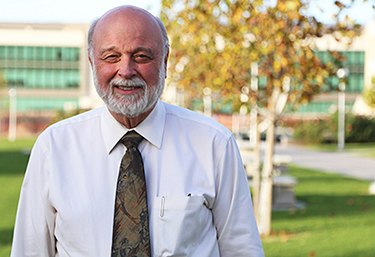
It has been two years now since the Seattle, Washington-based company Payscale.com published results from their survey that ranked Loma Linda graduates at #1 in the nation when asked “Does your job make the world a better place?” The question was intended to assess meaning in life, and 91 percent of our grads said they believed they did make the world better, outpacing most other ranked universities by some distance.
I have puzzled over that survey ever since reading it. Who of our grads answered that question? How many? From which of our schools? Why did we do so well? How would this compare to 20 years ago, 50 years ago, or 50 years in the future? How important is it to find meaning in what you do? Is it the key to happiness, to a good job or advancement, or just a nice side benefit if you can find it? Is it something you should look for until you think you have found it, or wait for it to find you?
David Brooks, a New York Times columnist and on the faculty at Yale, is one of my favorite commentators on today’s world. You tend to like those who agree with your views, so let me admit that first. By his own admission, Brooks grew up in a liberal Jewish home in Greenwich, Connecticut. His parents sent him to a Christian primary school, where he began his exposure to other world views. Five years ago he set out to write his latest book, focused on “cognitive humility.” But a Christian colleague convinced him to morph that topic into “moral and spiritual humility.” That book, titled The Road to Character, was published in 2015. In it Brooks shares his journey of trying to understand our current culture, looking for its keys, its foundational characteristics, that explain who we are and why we behave the way we do.
In a talk to the Council of Christian Colleges and Universities recently, Brooks references the millennials, those born after 1980 who are now coming of age and starting to take their place in society. While highly respecting them as people, he says “they assume that the culture of expressive individualism is the eternal order of the universe and that meaning comes from being authentic to self. They have a combination of academic and career competitiveness and a lack of a moral and romantic vocabulary that has created a culture that is professional and not poetic, pragmatic and not romantic. The head is large, and the heart and soul are backstage. …To ask about the meaning of life is unprofessional.”
Tough words for a university professor dedicated to his students. As he has searched for an antidote to this situation, he has increasingly embraced Christian educational institutions as having a unique offering for today’s world. He goes on to say “you [Christian colleges] have what everybody else is desperate to have: a way of talking about and educating the human person in a way that integrates faith, emotion and intellect. Almost no other set of institutions in American society has that, and everyone wants It … for all of us, religious or secular, life doesn’t come from how well you keep your options open, but how well you close them off and realize a higher freedom.”
And he closes with “What I’ve tried to describe is this task of helping young people build the commitments, the foundations of their lives. A lot of schools I go to do a great job at many things, but integrating faith, the spirit, the heart and the soul with the mind is not one of them. When I go to Christian colleges, that’s exactly what I see. That is the gift [your] institutions offer the wider culture. That gift is a gateway drug to the gift of the Almighty.”
A powerful endorsement, to be sure, of Christian institutions like Loma Linda, that believe their duty is exactly that – to encourage character development that resonates with these higher values. As I meet alumni across this country and around the world, they confirm this impact on their lives from this place, and are deeply grateful. What is the magic, the secret ingredient, that makes this happen? I am sure it varies as much as our students vary, but somewhere at the foundation is the concept of service to others. You cannot reach out in caring and compassion for another and not be changed yourself.
So that is why we continue to do what we do – encouraging involvement by our students and faculty to confront human need in its many forms. SACHS, SIMS, CAPS, CKC, Healthy Neighborhoods, San Bernardino Campus, and a myriad of other endeavors at Loma Linda are not co-curricular activities for spare moments. They are at the heart of our curricula, designed to call out the best in each of us. They provide “teachable moments” to form and solidify the kind of professionals who find meaning in all they do. May this “Loma Linda experience” live on for generations to come!
Cordially,

Richard Hart, MD, DrPH
President
Loma Linda University Health